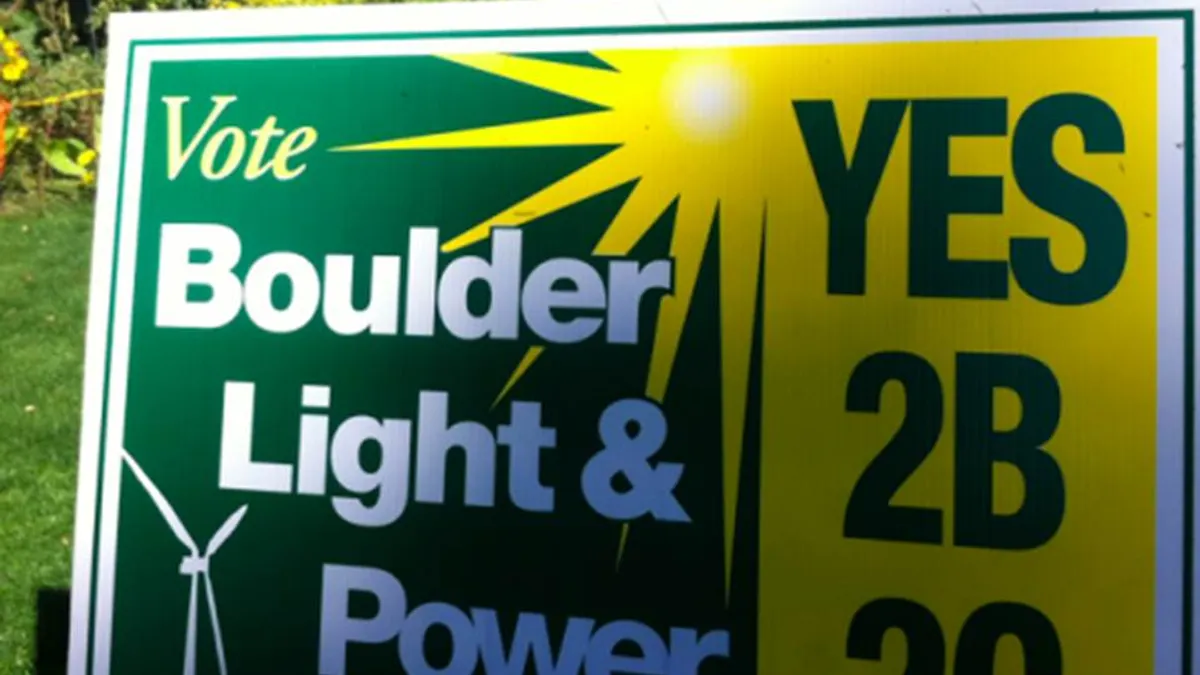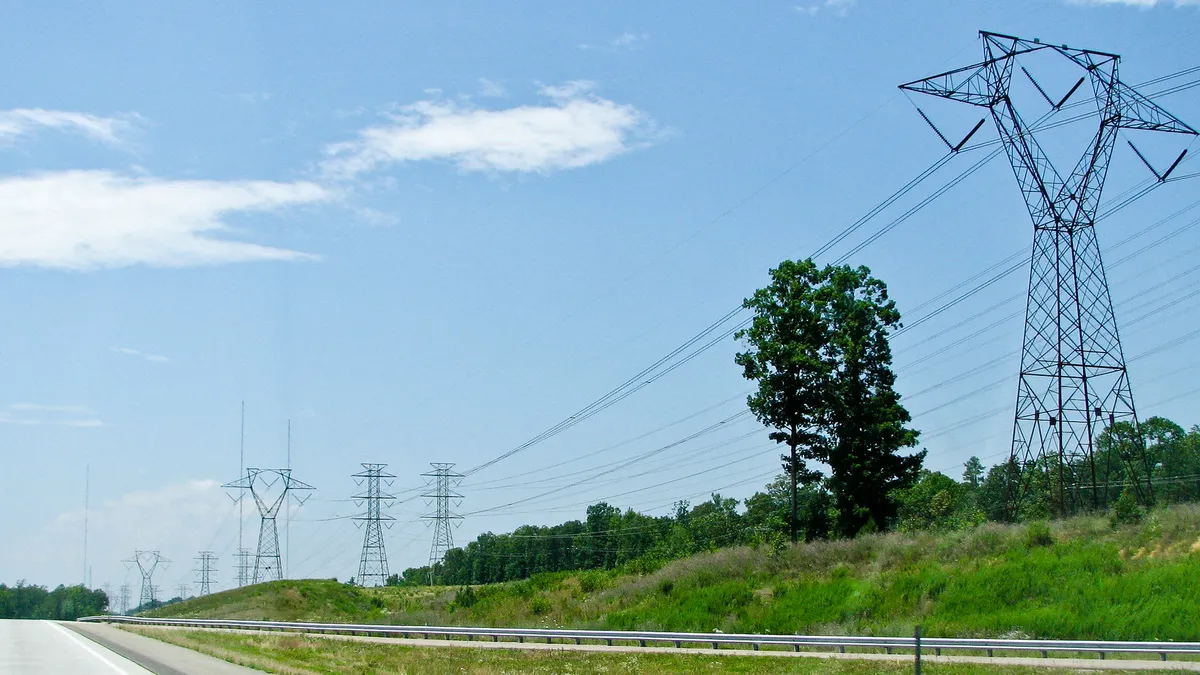Nearly five years after voters in Boulder, Colorado, voted to form their own municpal electric utility, the city's push to leave Xcel Energy could be coming to a close.
In the next few weeks the city of Boulder will file a supplemental application to form a municipal utility, the latest step in a years-long push to take over assets owned by Xcel. At the same time, city officials are negotiating with the utility, seeking cleaner energy and greater customer choice in return for dropping its takeover bid.
"We really are pursuing parallel paths in terms of our energy goals," said Jonathan Koehn, regional sustainability coordinator for the city of Boulder. "I think there is a perception we somehow hate one another but that just isn’t true. There’s litigation, but that’s how you get through these things."
One way or another, city officials hope to have something in front of the public before year's end. It could wind up taking the form of a negotiated agreement or collaboration with Xcel — a commitment from the utility to supply more renewable power and reduce emissions. On the other hand, the city could move forward with its municipalization plans, which would ultimately mean another ballot initiative.
Either path brings change to Boulder's energy supply. The situation highlights not just the city's drive to embrace more environmentally-conscious energy production, but the options available to other municipalities seeking to accelerate a low-carbon transition.
Preparation for the supplemental application is "well underway," said Koehn. "We believe we have a strong application. ... We are not going to compromise our schedule by slowing down with municipalization, but we are hopeful in terms of our talks with Xcel. There's real value in being able to negotiate."
The path ahead
Boulder's original application, filed last year, requested state regulators transfer assets from Xcel to allow the city to serve customers outside the incorporated lines. Regulators blocked that plan, leading the city to consider delivering power to its in-city customers over lines owned by Xcel Energy where feeders pass outside the city’s boundaries before reaching those customers.
But now, large amounts of data the city has received from Xcel during the muni process have given it a better idea of how the system functions, and in turn opened up a wider range of solutions.
"Now that we have that data, we’ve been able to understand how the system works, where redundancies occur, where the customers are," said Koehn. "You can engineer anything. ... Having the data has been a huge."
The data and engineering solutions will underpin Boulder's supplemental application, Koehn said, addressing the original problems. But the timeframe on any resolution remains uncertain.
"We're working pretty aggressively in terms of our discussions," Koehn said. But still, he said it is unlikely that a franchise agreement could be placed on the November ballot, though a special election or a November 2017 vote is possible.
"We want to make sure we do it right," said Koehn. "Any agreement we create with Xcel is something they would have to offer to other communities. That has always been one of our core objectives: Can we create a model for other communities? ... That has a much greater effect, if we're considering climate change and emissions."
'A big stick'
John Farrell, director of Democratic Energy at the Institute for Local Self-Reliance, has experience with municipalization efforts. He led Minneapolis Energy Options, a group closely involved in the green energy push in that city.
Minneapolis wound up using franchise negotiations in 2014 with CenterPoint Energy and Xcel Energy, along with the threat of municipalization, to urge the two incumbent utilities to participate on a board assisting the city in meeting its carbon goals. While Farrell doesn't recommend cities rush into the process, he said municipalization efforts can lead to the negotiating table where the same goals can be achieved.
"Cities are waking up to the fact that there are more tools in the toolbox when it comes to energy than they previously considered," said Farrell. But he added of muni drives, "I don't think it should be done lightly."
Koehn had similar feelings, recognizing a municipalization push as an effective tool "as long as the municipality or community is serious about following through. We never saw municipalization as a bluff. We began negotiating a decade ago."
"It's a big stick," he said of a community's intention to leave an incumbent utility.
Xcel Energy declined to comment on the ongoing negotiations, instead pointing to a recent joint statement on the issue.
"Both Boulder and Xcel Energy share numerous objectives and goals," David Eves, president of Xcel Energy Colorado said in the statement. "We believe working together we can take advantage of each other’s strengths and plans to significantly reduce greenhouse gas emissions, increase renewable energy and provide more customer choice and programs, which could serve as a roadmap for other communities in Colorado and the nation."
But in many instances, said Farrell, utilities don't really want to change.
"Utilities are used to being king, and I think they find it very offputting for anyone to suggest someone else should be doing something on their grid," he said. "Cultural inertia is a big piece of it. ... They don't want to change, the rules don't encourage it, and it's not a money-making opportunity for them."























